 Petzlover
Petzlover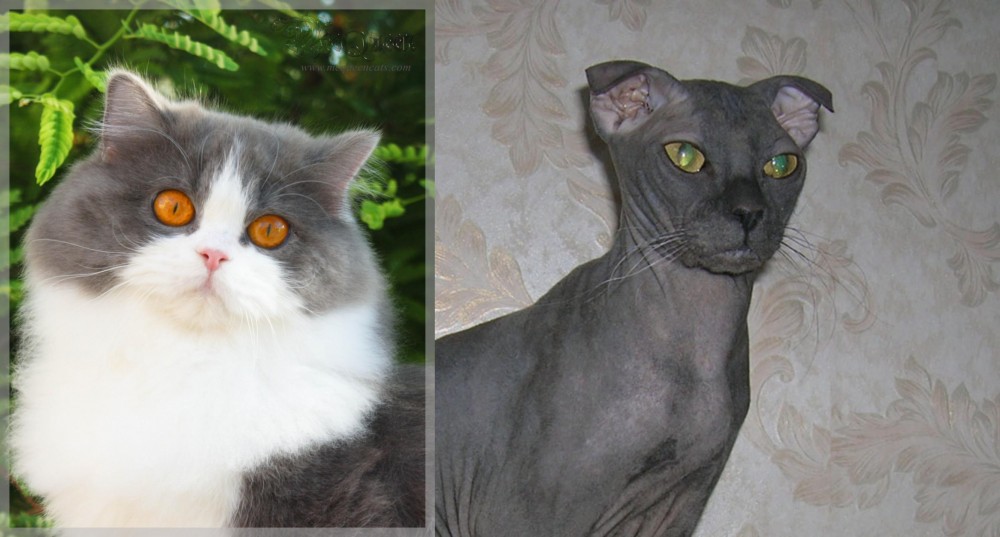 British Longhair is originated from United Kingdom but Ukrainian Levkoy is originated from Ukraine. Both British Longhair and Ukrainian Levkoy are having almost same weight. Both British Longhair and Ukrainian Levkoy has almost same life span. Both British Longhair and Ukrainian Levkoy has same litter size. British Longhair requires Moderate Maintenance. But Ukrainian Levkoy requires Low Maintenance
British Longhair is originated from United Kingdom but Ukrainian Levkoy is originated from Ukraine. Both British Longhair and Ukrainian Levkoy are having almost same weight. Both British Longhair and Ukrainian Levkoy has almost same life span. Both British Longhair and Ukrainian Levkoy has same litter size. British Longhair requires Moderate Maintenance. But Ukrainian Levkoy requires Low Maintenance
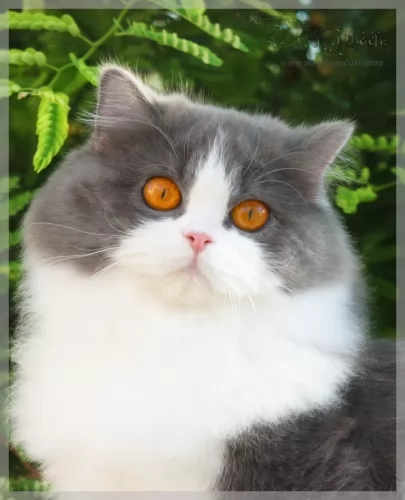 The British Longhair cat hails from Great Britain. The cat is a longer-haired variety of the British Shorthair.
The British Longhair cat hails from Great Britain. The cat is a longer-haired variety of the British Shorthair.
These British Shorthairs were interbred with imported long-haired varieties with the idea being to bring about a cat that was more compact and stout and with a rounder face. Today the British Longhair is an established longhair breed in its own right.
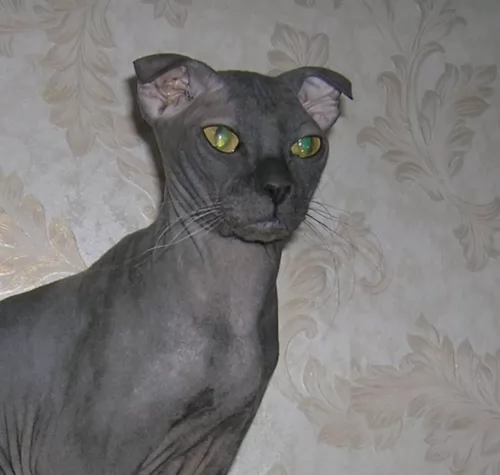 The Ukrainian Levkoy is a distinctive looking cat with its folded ears. This is a new breed of cat, only being developed recently early in the 2000s.
The Ukrainian Levkoy is a distinctive looking cat with its folded ears. This is a new breed of cat, only being developed recently early in the 2000s.
The cat was first developed by Elena Biriukova in Ukraine, by crossing the hairless Donskoy cat with the Scottish Fold. Also, Oriental and domestic cats were also brought into the mix.
This particular cat breed was recognized in 2005 in Ukraine and recognized in Russia in 2010. The cat isn’t recognized by any of the major international cat organizations.
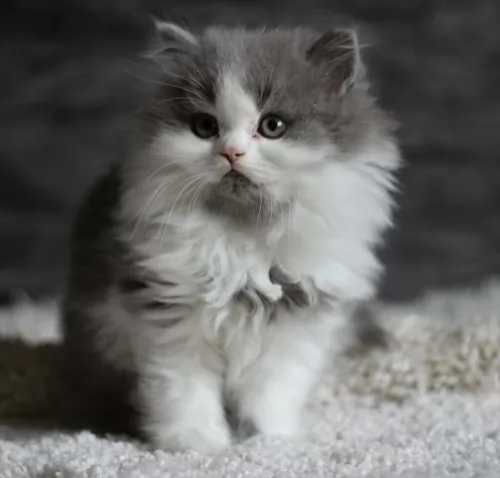 The beautiful British Longhair cat is a medium-sized feline, leaning towards being a large cat with semi-long hair.
The beautiful British Longhair cat is a medium-sized feline, leaning towards being a large cat with semi-long hair.
The cat, whether males or females can weigh between 4 and 8kg. It is robust and muscular with round paws and legs of medium length. The ears are smallish and round at the tips.
The color of the eyes can be different - browns, greens, blue, and grey. The colors of the coat can be blue, white, black, grey, calico, tabby, bi-color and tortoiseshell. The coat can be a solid color or it can be in different patterns. The fur is always medium length and silky with an undercoat.
The British Longhair has much the same personality as the British Shorthair – being calm, amicable cats who appreciate their human owners.
They’re adaptable cats too and are willing to get along with any other pets in the home as well. They’re playful and affectionate with their owners but don’t particularly like being held for too long.
Even though this is a docile cate, it is intelligent and will require mental stimulation. You’ll need to invest in a few ‘intelligent’ type of toys to keep your cat physically and mentally active. Take a look at the kinds of games where your cat will be required to ‘hunt’ for his food.
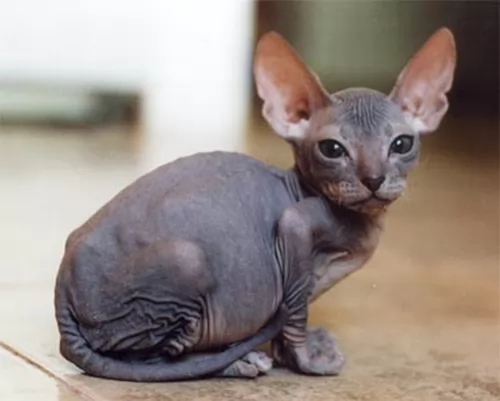 With his distinctive appearance, the medium-sized, muscular but slender Ukrainian Levkoy cat weighs in the region of 3 to 6kg.
With his distinctive appearance, the medium-sized, muscular but slender Ukrainian Levkoy cat weighs in the region of 3 to 6kg.
He has these inward-folding ears with very little hair. These are two distinctive features of this cat. The skin is soft and wrinkled, the eyes large and almond-shaped while the ears are also large and set wide apart and high on the wedge-shaped head.
He has long, slender legs and a narrow tail. The litter size of these cats is generally 3 to 6.
Friendly and playful, the Ukranian Levkoy is also intelligent and enjoys having human companionship.
He is social and will make friends of other pets in the house. He is also compatible with children.
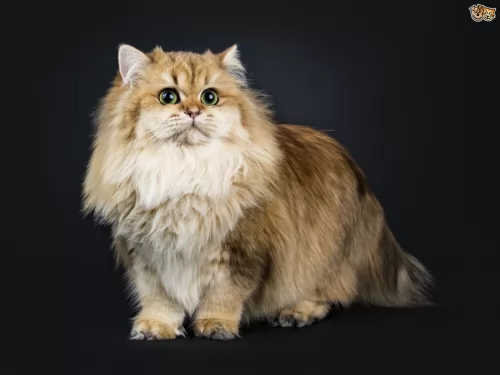 The British Longhair makes an awesome pet and can live happily with children, other dogs, and cats and all of his human family.
The British Longhair makes an awesome pet and can live happily with children, other dogs, and cats and all of his human family.
He isn’t a cat that wants to be picked up too often – he is independent but is willing and loving towards his humans.
For the friendship he offers, you’ll want to reward him for the joy he brings by providing well for him.
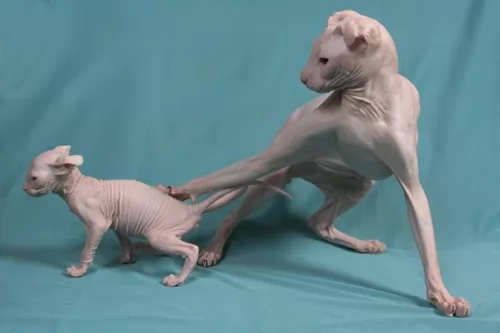 The Ukrainian Levkoy, even though he is fairly docile, is a very sociable cat that thrives on human interaction.
He is able to get on well with children as well as with other pets. He is also quite a vocal cat and will let you know when he is hungry or wants to play. Some call them ugly and others call them sweet - whatever you make of the Ukranian Levkoy, he needs your love and care to be the best pet he can be.
The Ukrainian Levkoy, even though he is fairly docile, is a very sociable cat that thrives on human interaction.
He is able to get on well with children as well as with other pets. He is also quite a vocal cat and will let you know when he is hungry or wants to play. Some call them ugly and others call them sweet - whatever you make of the Ukranian Levkoy, he needs your love and care to be the best pet he can be.
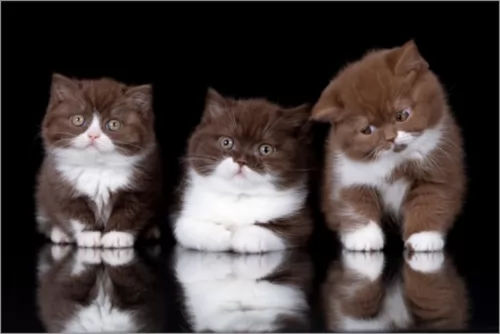 These beautiful cats can be prone to obesity if kept as an indoor cat only and a cat that doesn't get enough exercise.
These beautiful cats can be prone to obesity if kept as an indoor cat only and a cat that doesn't get enough exercise.
Obesity, an accumulation of excess body weight, is a preventable disease. It is necessary to prevent this obesity as it can reduce your pet’s life expectancy. Fat tissue is active, secreting inflammatory hormones and creating oxidative stress on the body’s tissue, and this is precisely what contributes to so many diseases.
The British Longhair cat can also be prone to renal polycystosis. This disease is where many pockets of fluid or cysts form in the kidney and if they grow large over time they can actually interfere with kidney function and this can bring on kidney failure.
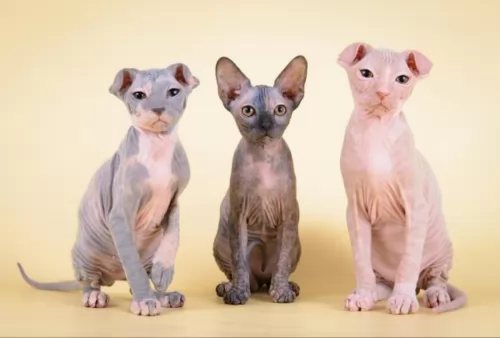 These cats are generally considered to be healthy cats. Having said that, they can be predisposed to the same conditions that the Donskoy and Scottish Fold breeds face.
These cats are generally considered to be healthy cats. Having said that, they can be predisposed to the same conditions that the Donskoy and Scottish Fold breeds face.
It is always beneficial to know and recognize some of the symptoms of a sick cat - lethargy, vomiting, diarrhea, heavy breathing and lack of appetite. Then it's time to schedule a visit to your local vet.
While there aren't any breed-specific health problems associated with the Ukrainian Levkoy, it is imperative to have him vaccinated against the deadly cat diseases that there are.
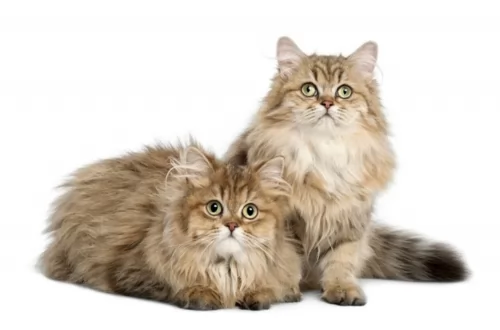 Because of the long hair, the British Longhair is going to require brushing as the coat can easily become matted, particularly as the coat thickens in preparation for winter.
Because of the long hair, the British Longhair is going to require brushing as the coat can easily become matted, particularly as the coat thickens in preparation for winter.
You’ll need to brush the hair once a week, but perhaps more in peak shedding times. A gentle but firm brushing keeps the cat’s fur and skin in good condition.
Have your pet spayed and neutered to avoid unwanted kittens.
Take your pet to the vet as soon as he is unwell. He is part of your family now and must be treated as such.
Provide your pet with human companionship especially if you buy one of the more social cats.
If your cat is an indoor pet, provide him with a litter box ad be prepared to clean it every day.
Provide a clean, dry, comfortable bed in a quiet area.
Provide your cat with stimulating toys.
Vaccinate your cat against the major feline diseases. Also, have your cat dewormed.
In terms of nutritional requirements, make sure that your British Longhair gets the very best cat food there is, whether you provide him with homemade food or you give him some of the excellent commercially manufactured cat foods there are.
There are wet- and dry foods and it's for your furry friend to decide which one he prefers.
Learn to read labels and make sure your cat is getting foods high in protein, after all, your cat is a carnivore.
Be sure that the food has lots of vitamins and minerals for his health. A cat also needs a constant supply of fresh, cool water.
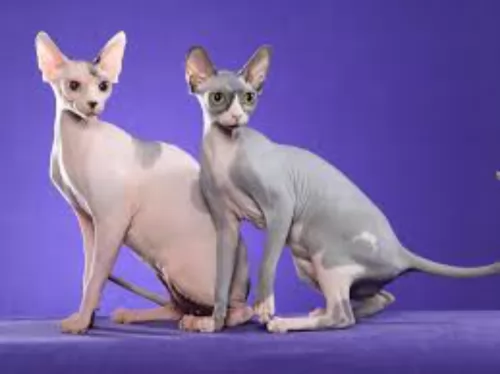 As with all cats, it's important to keep up your Ukrainian Levkoy's regular veterinary checkups. This means you can get to any health concerns early so that your vet can come up with a treatment plan for your pet.
As with all cats, it's important to keep up your Ukrainian Levkoy's regular veterinary checkups. This means you can get to any health concerns early so that your vet can come up with a treatment plan for your pet.
Some cat lovers make a point of scheduling yearly wellness visits with their vet, and this can be a good thing. Cats are natural scratchers so make sure you invest in a scratching post for him.
The inside of the Ukrainian Levkoy's ears should be examined regularly for signs of dirt and wax build-up. It can lead to infection. Speak to your vet about your cat's ears if yourself.
The Ukrainian Levkoy is an active cat and if he is an indoor cat, he will definitely need a climbing tree or some kind of cat perch to leap up onto.
The Ukrainian Levkoy is a hairless cat, so you won't brushing your cat's hair but he will need to have a bath. The skin can become oily and attract dirt. Diet is absolutely important. You'll need to make sure you're feeding your cat a high protein diet as every cat is a carnivore. A cat like this needs to stay in shape to avoid cat diseases related to being overweight.
Most Ukrainian Levkoys need to be kept warm, so you might well have to invest in a jacket or jersey to keep him warm on a cold day.